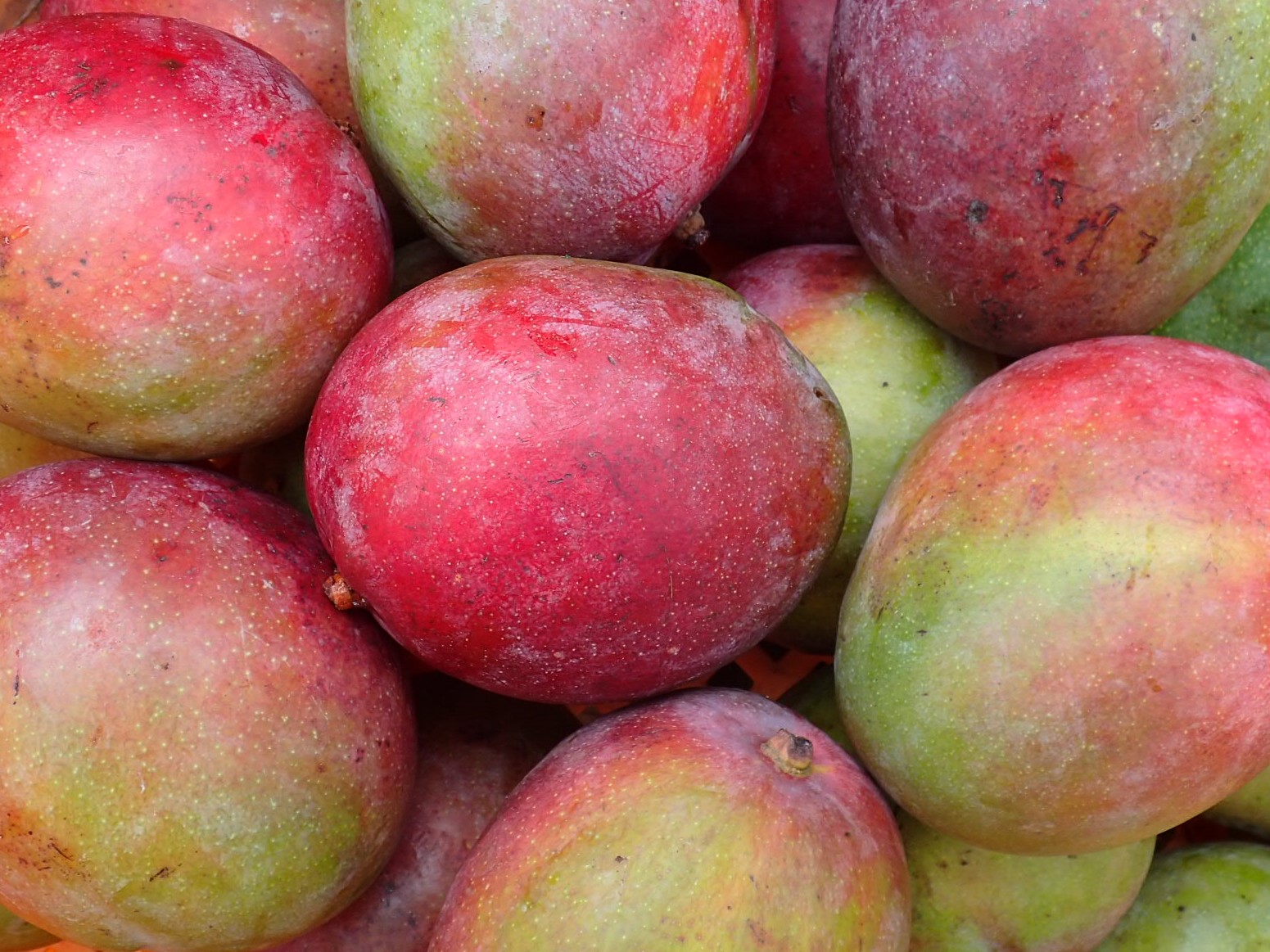Sustainability

As nutritious as Hoshiimo, Japanese dried sweet potatoes.
Cheap and delicious snacks for every child.
That is our starting point.
As nutritious as Hoshiimo,
Japanese dried sweet potatoes
Cheap and delicious snacks for every child.
That is our starting point.
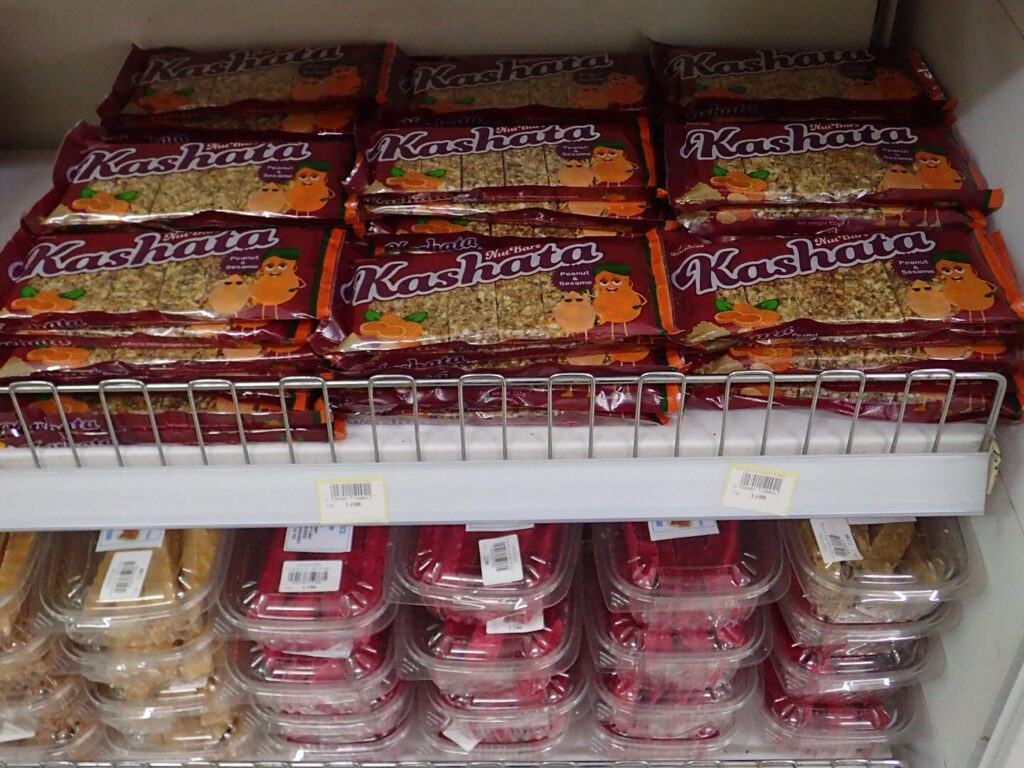
Nutritious, affordable and tasty food
Hoshiimo is Japanese dried sweet potatoes, which is nutritious, cheap and tasty food in Japan. It was spread from a snack for farmers to a portable food for fishermen, spinners and the military in the Meiji and Taisho periods. Today, it is reevaluated as a safe and healthy food with no additives.
Our starting point is to produce nutritious, inexpensive, and delicious foods like Hoshiimo. Sugar-free dried fruits, Imokempi and nut bars are all based on this concept.
And in order for our products to be loved by people on a daily basis, we insist on low prices. However, we do not cut costs to lower the quality of raw materials. In order to eliminate waste in the procurement of raw materials and manufacturing processes, we are constantly reviewing and improving our ingenuity.
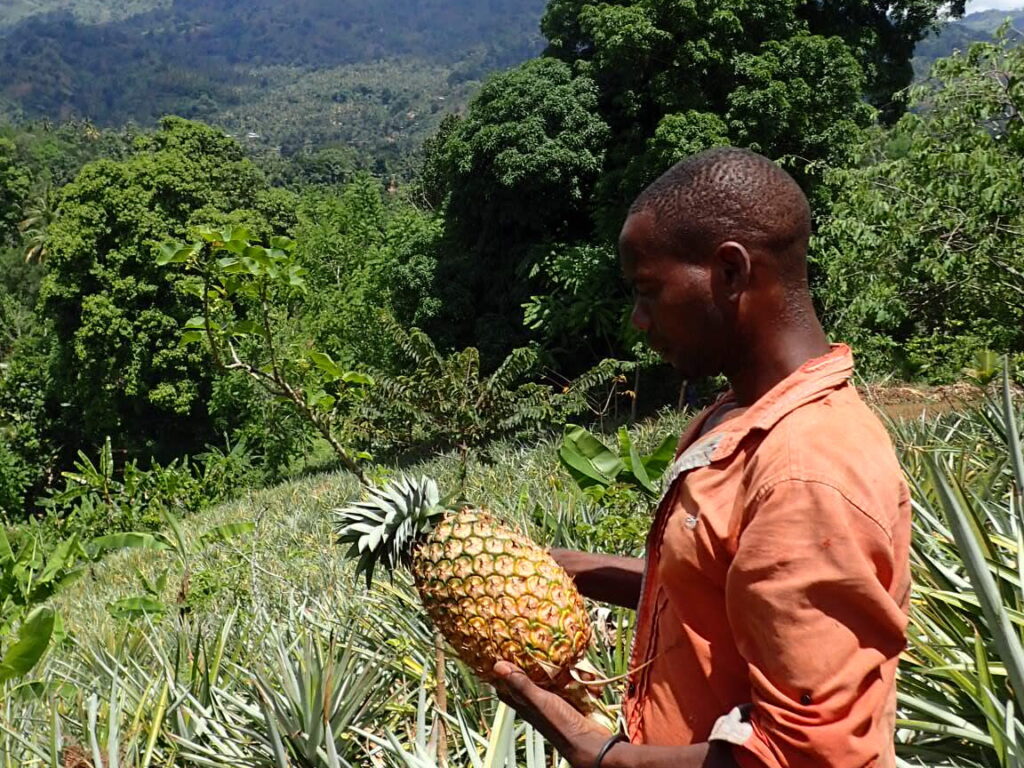
Our commitment to raw materials
Hoshiimo is made only from sweet potatoes, and sugar-free dried fruits are made only from fruits. Therefore, the quality of the ingredients directly affects the quality of the product. We buy our ingredients directly from the farmers.
We use only good sweet potatoes —weighing 100 grams or more without insect bites or blemishes—. For mangoes, we use only specific varieties with known cultivation methods. For pineapples, we buy only those that have been naturally cultivated in the Uluguru Mountains.
The raw materials that have passed the strict criteria are allowed to ripen in the storage room and are brought to the factory only after they have reached a certain sugar content. By taking data on the raw materials from various angles during processing, we are able to improve product quality and reduce costs at the same time.
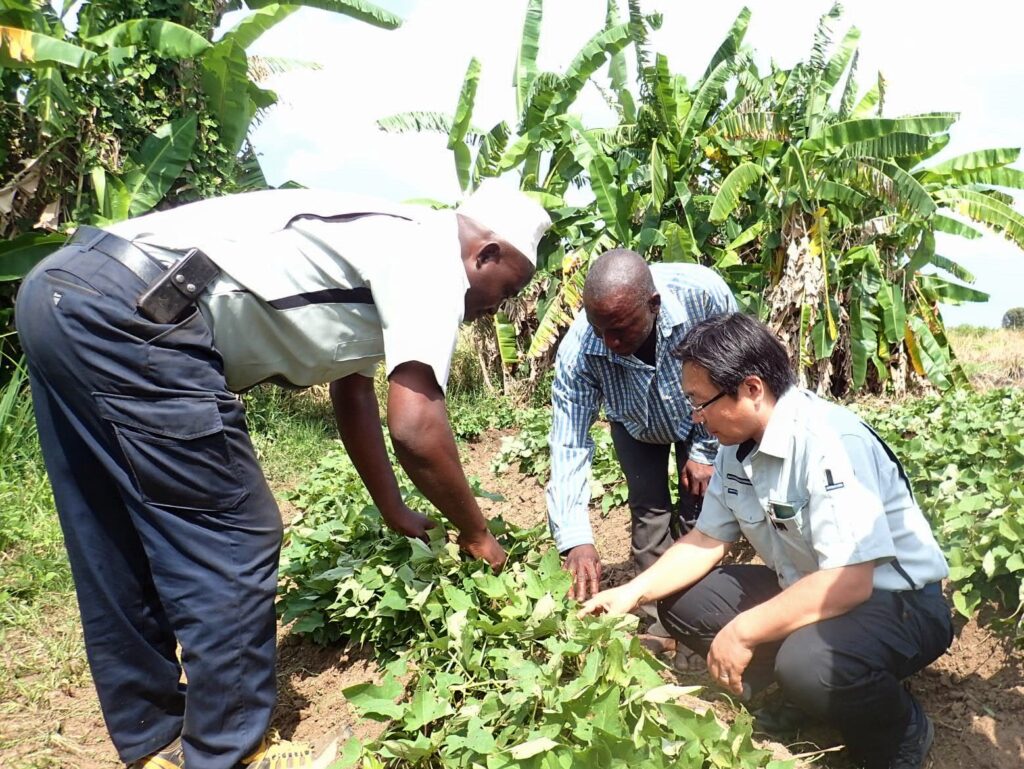
Work Together with Farmers
We deal directly with farmers of diverse crops. We select and procure products based on quality, so we devise trading conditions that allow us to pay a higher unit price than usual for good raw materials. We discuss and review the terms of trade every year.
Every year, we look at a lot of fields and study the know-how, which we feed back to the farmers to increase the percentage of excellent products. The more money the farmers can get, the more we can secure good quality raw materials.
By improving their cultivation techniques, they can increase their income, and we can build a relationship of trust and keep it for a long period. Since the Tamayutaka variety registration trial, there are many farmers who have asked us to grow their crops every year.
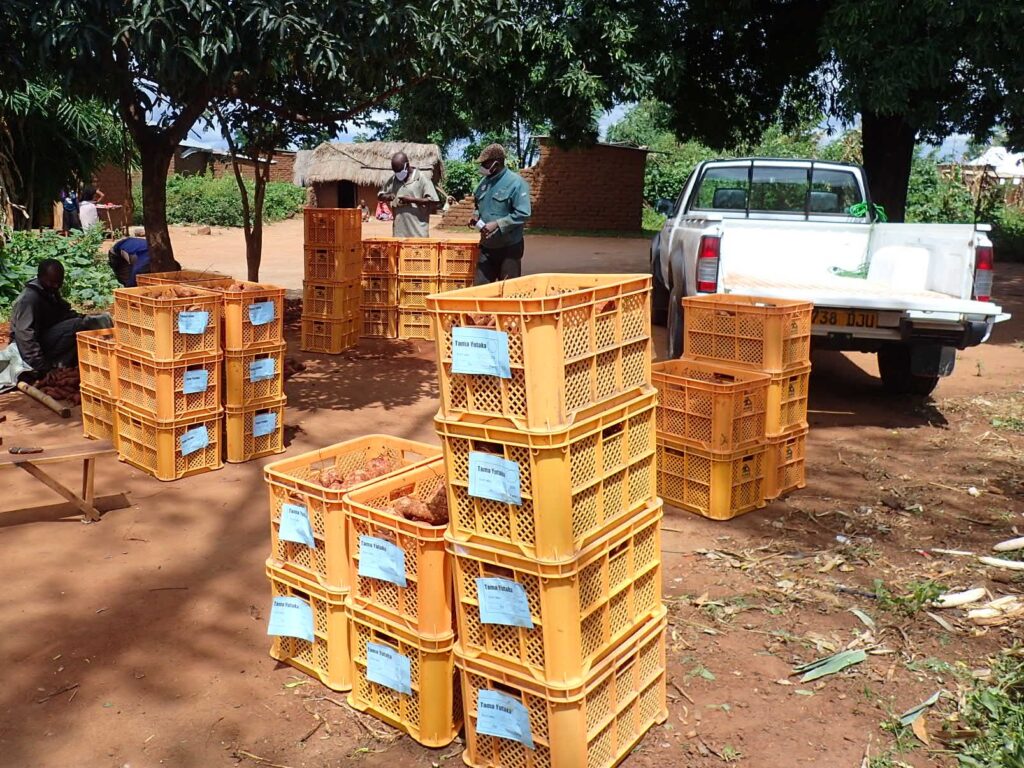
Control from the field to the port
We strongly believe that Tanzania is a country that can produce the best agro-processed products. To achieve this, we control the quality of our products by paying close attention from the field to the port. This is the foundation for developing a new export industry.
That’s why we do everything by ourselves, from harvesting the raw materials in the field, to processing them at the factory, to shipping the products at the port. This is because a defect somewhere in these value chains may deteriorate the quality of the products.
For example, in our region, sweet potatoes are usually transported in jute bags. Twenty to thirty percent of the sweet potatoes are discarded during transportation, and the remaining sweet potatoes do not survive the ripening process. We transport the sweet potatoes in containers. By doing so, the transportation loss is much reduced, and they can be processed into well ripened ones.
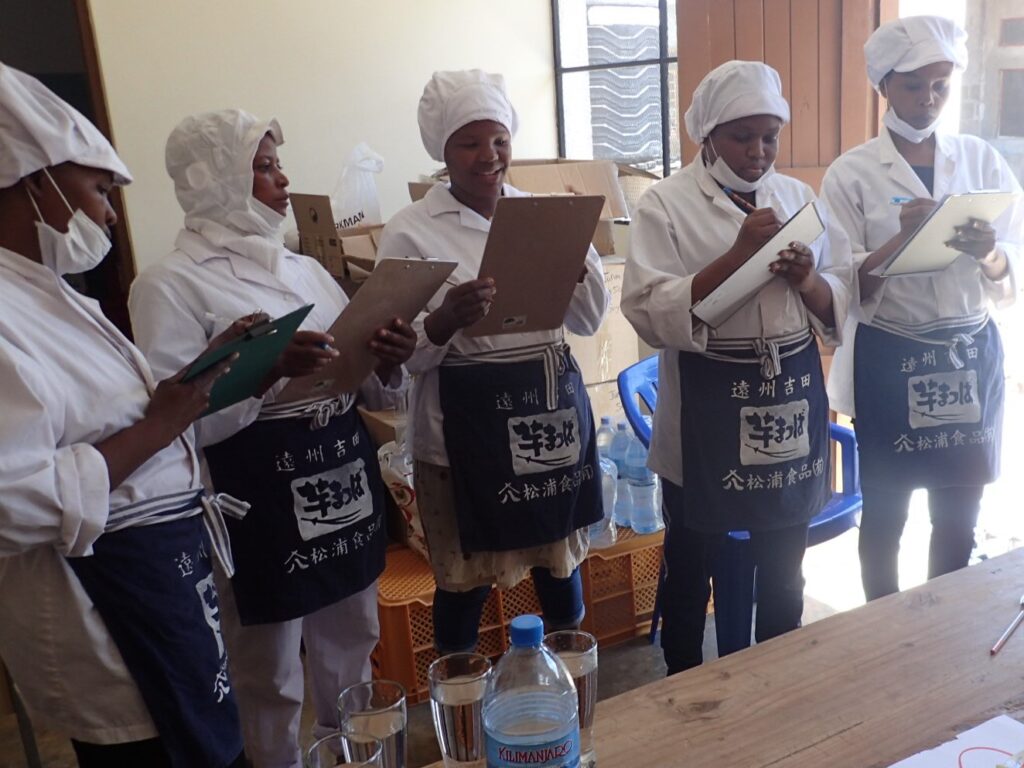
Work environment where everyone can be active
The factory staff are mostly women, and most of them live near the factory. Some are mothers raising children, and others have never been able to go to school. Some have been working for years, while others work only for short periods of time.
Payroll based on hourly rates, 30 minutes every morning for environmental maintenance, zero time spent looking for things, postings in Swahili language, encouraging 15-minute naps, organizing events such as year-end parties, free lunches, providing smartphones and communication…
These systems were introduced in an ingenious way so that people from various backgrounds can be active while balancing family and work. If they can be realized in compliance with laws and regulations, good ideas are actively introduced, even if they are unheard of.

